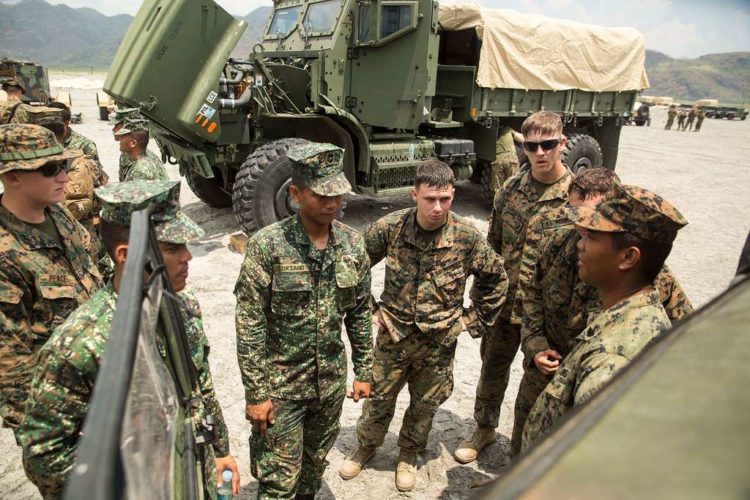“China’s foreign policy seeks to reshape the international order to its benefit and to employ China’s growing political, economic, military, and technological power to that end. This behavior is of serious concern to the alliance and the entire international community and represents the greatest strategic challenge in the Indo-Pacific region and beyond,” according to the joint statement, Secretary of State Antony Blinken, Defense Secretary Lloyd Austin and their Japanese counterparts, Yoshimasa Hayashi and Yasukazu Hamada.
Our SOFREP team echoes this sentiment as we know that there’s always a danger that one side will miscalculate and push things too far.
It is worth noting, however, that one recent event has had a positive effect on Sino-American relations: the recently signed trilateral trade deal between the U.S., Britain, and Australia, which aims to reduce trade barriers between them and open up new markets for their products in member states including South Korea and Taiwan; two countries who are increasingly looking towards alternatives to Chinese imports due to rising tensions between Washington and Beijing. In addition, the deal provides much-needed relief for both sides by facilitating greater economic cooperation, which can help alleviate some of their current tensions over trade disputes.
India’s Role In The Tensions
India is cooperating militarily with America but, simultaneously, wants to preserve its policy of strategic autonomy by avoiding any multilateral security arrangement or coalition that could pressure Russia/China into action against them.

Thailand, on the other hand, views itself as a neutral state, while South Korea does not want to get caught in US/China crossfire as both powers compete for regional supremacy. India and Thailand are keeping a close eye on the situation as it develops so they can take whatever steps are necessary for their safety and security.
The AUKUS Deal And Its Effects On China
Recently there was a deal signed between US/Britain/Australia (AUKUS) where they agreed to help Australia develop nuclear-powered subs, which China viewed as a provocation undermining the international nonproliferation regime. This development has further added fuel to already simmering tensions between the two sides and could lead towards more aggressive posturing from the Chinese side if the situation is not resolved diplomatically soon.
It would appear that China’s increasing presence combined with North Korea’s continued aggression may lead us down an unpredictable path over the next couple of years if not handled carefully by military leaders on both sides who are keenly aware of all potential implications that their decisions might have on international relations. Of course, with numerous facets involved ranging from economics down to security issues, it remains unclear where exactly this dynamic will end up, but what can be said with certainty is that time will tell what kind of impact these provocations will have on Pacific politics for years come.
The escalating tensions between the United States and China continue to cause unease among countries located in the Pacific region. As a result of these tensions, various countries have taken steps such as increasing their military capabilities or maintaining neutrality depending upon their own interests/safety and security concerns. Furthermore, the recently signed AUKUS deal has further angered Chinese authorities, who view it as a provocation undermining the international nonproliferation regime. It remains unclear what steps will be taken next, but one thing is sure all eyes are now focused on the Pacific region as this developing situation unfolds.










COMMENTS